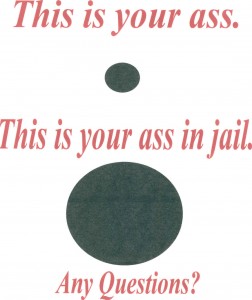On a recent day in New Zealand we were treated to the following news.
A group of rapists who openly bragged about having pack sex with drugged or drunk underage girls on social media were outed by a news outlet, which led to revelations that the police, who have an institutional history of rape of their own, refused to prosecute the rapists even though their identities were well-known (one is the son of a police officer) and four girls complained about the assaults long before the media broke the story. The police apparently questioned the first complainant about her manner of dress and was told that what she wore invited the attack. The cops now argue that there was insufficient evidence to bring charges.
The police initially said that no complaints were laid and that the social media sites were only recently opened by the rapists, then closed. Both of those claims have now been proven to be untrue, so either the police spokesmen were lying (and that includes a senior detective and a district commander), or they were misled by their subordinates for reasons yet to be determined. The police also say that the fact that one of the rapists was the son of a sworn officer was immaterial to the (as of yet nonexistent) case.
That may or may not be true. What is undeniable is that a number of underage females were sexually assaulted by men over the age of consent who made public their exploits (including why they stupefied the girls and why they only engaged in pack assaults on them) and identified the victims as a form of public shaming. The cops listened to four complaints about these assaults, decided that there was no merit to them (or no evidence to substantiate them even though four different girls essentially described enduring the same thing done by the same men), then stood by, watched the social media coverage provided by the perpetrators and did nothing.
At the same time this story unfolded a convicted spouse abuser who claimed in defense that he was provoked by his victim was promoted to the most listened radio sports program in the country, having worked his way back into that format less than a year after his conviction and having had the Prime Minister subsequently grace his studio to exchange banter about laddish things (including Elizabeth Hurley’s “assets”).
Not to be outdone on the victim-bashing front, a few other prominent male radio talkback hosts (two of them Maori) ridiculed and insulted rape victims when discussing the case of the underage girls, essentially telling callers that drinking and wearing provocative clothing was primarily to blame for what happened.
Coincidentally, a misogynist bigot was brought back from foreign television exile after a series of gaffes and embarrassments to host a prime time news show at one of the highest salaries offered to a television host in New Zealand. His forte is adolescent potty jokes, particularly those directed at women.
Rightwing smear merchants and other retrogrades blame the rape club’s actions on liberal society and the pernicious effect of modern popular culture (when not Len Brown, for his adulterous behavior, as if that were comparable to rape). There may be some truth in such views (save the Len Brown example), but  there is the small problem that all the other instances cited above involve men of older generations working in venerable public institutions.
Let’s be clear on this: all of the instances cited other than the social media rape club members are not delinquents but well-established members of New Zealand’s institutional elite, and there are plenty of others who share their predilections and positions of esteem (I have chosen only a handful of notorious examples to illustrate the point).
Some of these apologists/pundits keep on calling the rapists “boys” even though the age of consent in New Zealand is 16 (the rapists were and are 17 to 19). That is worth noting because they also argue that at least some of the pack sex with 13 and 14 year old girls may have been consensual, which indicates they have no clue what “age of consent” means in theory or in practice.
Let me put it more crudely: How is it that a 17 year old is a “boy,” and hence acting impulsively and irrationally when sexually engaging a deliberately stupefied 13 year old female, yet that same female is supposedly capable of consenting rationally, as a woman, to pack sex under the heavy influence of soporific?
Are females who are underage, impressionable, alone, unconscious and/or delirious equally responsible for the acts of male adults behaving soberly, collectively, calculatingly and deliberately when using intoxicants for the purpose of sexual conquest as motive for and product of their behaviour towards said females?
There is a more general point to this reflection. What does this series of coincidental snapshots tell us about New Zealand today? Are these aberrations of the Kiwi male character that somehow have gone unpunished and in fact rewarded in violation of accepted norms, or is Aotearoa not a safe place to be female?


